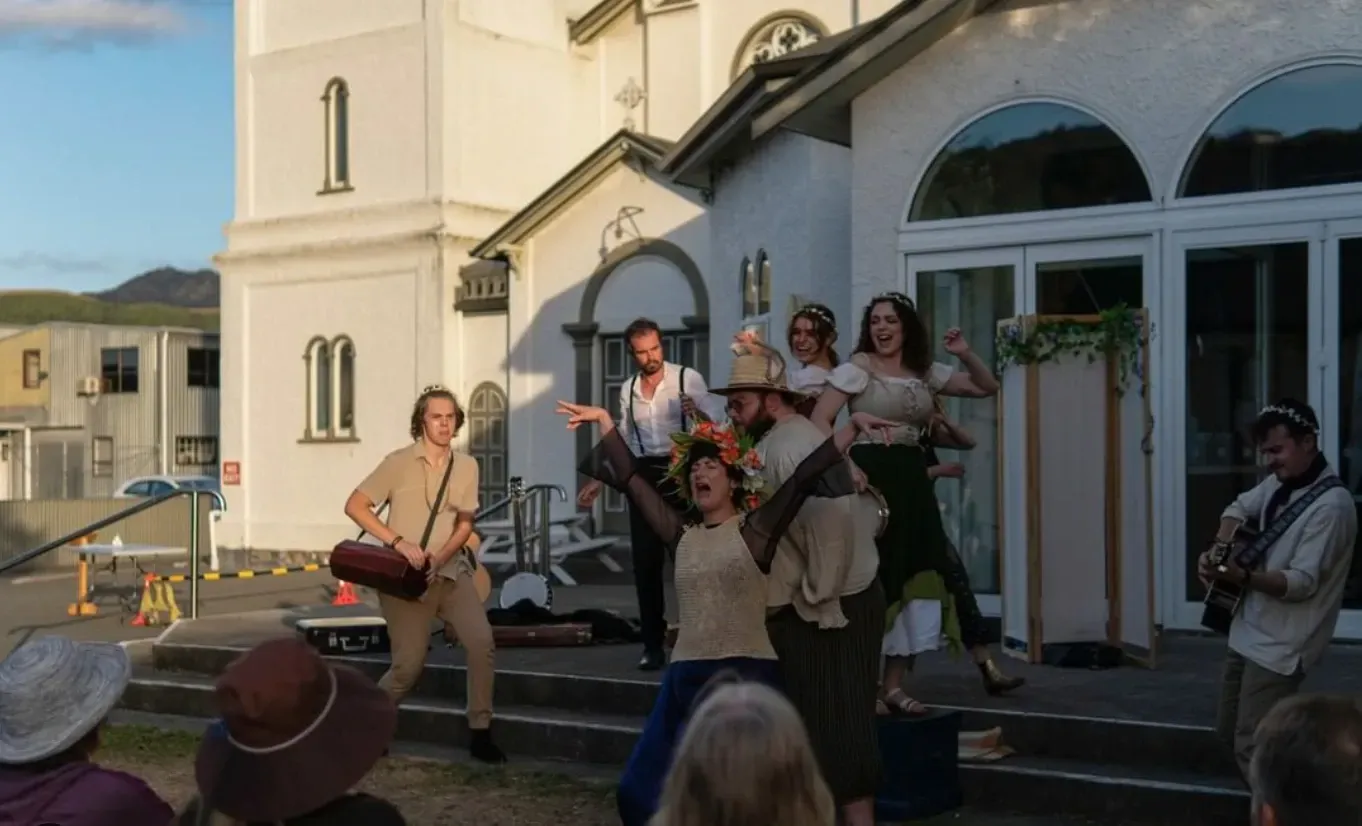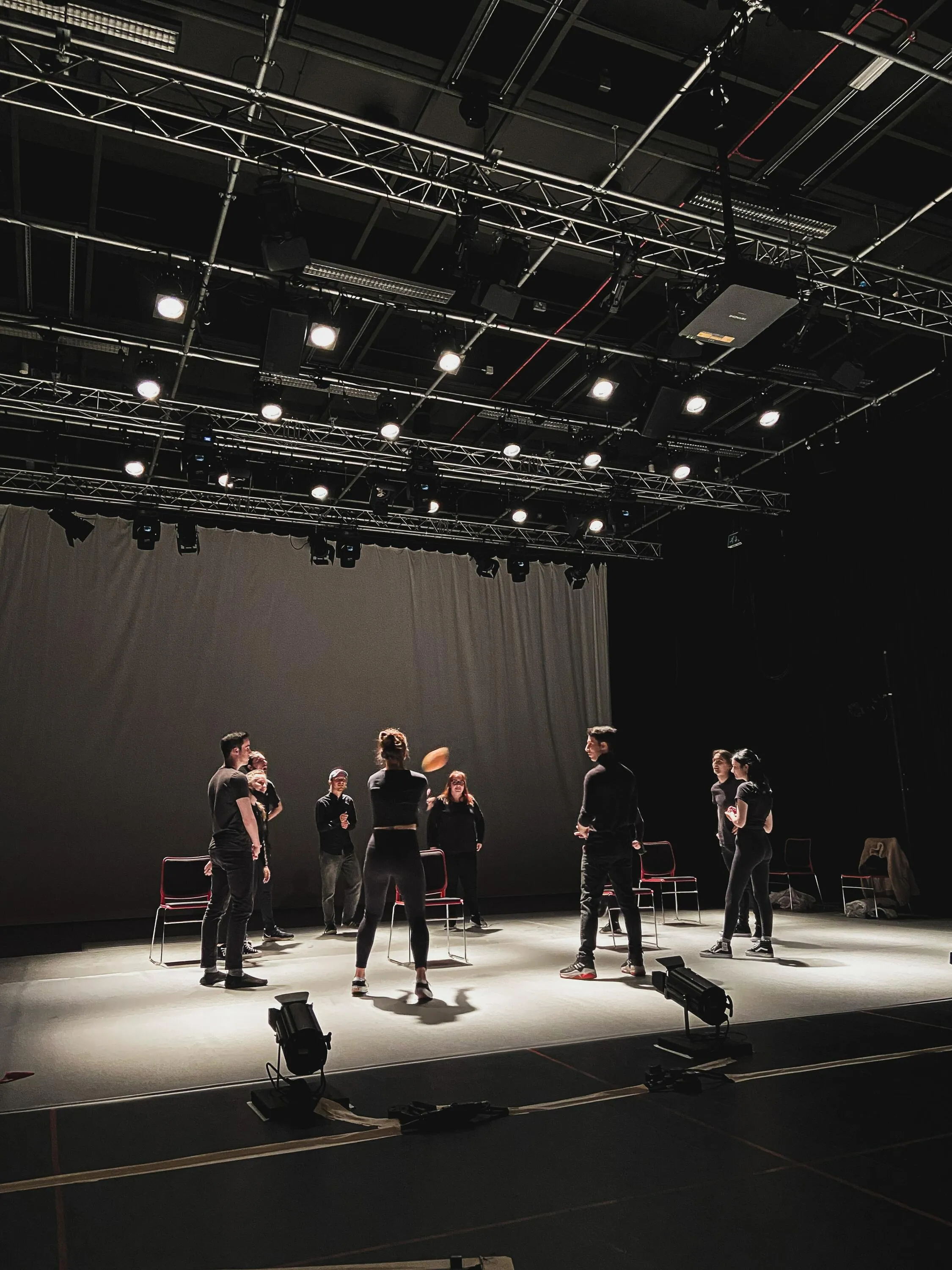Theatre I.N.C. - A Wero For Stage Productions

Daniel Allan has been a devotee of the Aotearoa theatre scene for decades, filling nearly every role imaginable - performer, writer, director, reviewer, teacher, administrator. The former Nelsonian of the year for Arts was also a driving force in the creation of Nelson Fringe. Allan is currently studying for a MFA at Otago and has a challenge to lay down to the country's theatre makers.
Digital educators have adopted a handy mnemonic to get young people thinking about the online comments they make.
Call it a troll catching net - it could be adopted by some adults I know too - and goes like this:
“Before you post, T.H.I.N.K: Is it… True? Helpful? Inspiring? Necessary? Kind?”
It’s adapted from something similar Socrates recommended about oratory. The idea that before we make a fool of ourselves, or someone else, we pause to consider the ramifications. It’s not complicated, really, just being a considerate human.
Theatre makers are generally considerate humans. I mean, selfish people don’t spend long hours in cold, windowless buildings, trying to understand human nature, honing empathy, and toiling cooperatively on a project that will make them no money.
And yet, after coming home from another disappointing live theatre experience recently, I am seriously pondering: Why does theatre-going so often seem like I am doing the production a favour?
Why am I so often finding myself in what Mike Alfreds aptly termed “the slow torture of auditorium torpor,” or what Peter Brook refers to as the Deadly Theatre?
In short, why is so much of our theatre… bad?
Defining ineffective theatre
I go to a lot of theatre. I mean, really a lot. Upwards of 300 performances in my adult life, if I were to hazard a guess, events of all types, mostly in Christchurch and Nelson but also while visiting other centres. And I have been rewarded with some truly magical experiences.
But if I am honest, the majority of the shows I have seen in this country are poor to middling experiences. And if you ask me, that’s a real problem for our community, because if a die-hard theatre kid like me is being constantly bored or disappointed by theatre, then how many ‘swing-vote’ punters have turned away from our craft on the first, second or third encounter?
How I judge a play’s ineffectiveness may not be how you think. Whacky plots, bad acting, and shonky production values are not deal-breakers in my book. Some of these factors can actually add to the fun. The way I would judge ineffective theatre can be applied to any theatrical event, ranging from a new-entrants class production to professionally performed Shakespeare.
What it boils down to is a failure to connect.
Connection to an audience is vital. For is theatre not the ‘seeing place’ - the great mirror to our society where we come to see truths, whether funny or tragic, played out?
The frustrating thing is that a production that fails to connect could be headed off in the conception phase. Not enough makers are asking themselves, or each other, basic motivational questions. If actors are tasked to answer ‘What’s my motivation,’ should not our producers be tasked with this too?

Photo: Hamish Kale/Unsplash.
Key questions
Here are some questions I believe producers need convincing answers to before starting out on a project:
- Why are we making this performance?
- Who is our audience? and,
- What is it that we want to say to them?
Only once they’ve got some clear answers there, might they move on to the next stage: choosing (or writing, or devising) a play.
I’m not being silly here: most theatre makers in Aotearoa - from small town am-dram to well-funded professional companies - do not have convincing answers to these questions. And not because they have bad intentions. They have probably just skipped some steps, or started in a different place.
When asked these questions they might trot out: ‘Because acting is enjoyable,’ or ‘We want to get bums on seats,’ or ‘We know that this play is a goodie because it worked overseas,’ or ‘We want to give the audience a good laugh.’
In other words, a lot of theatre is produced for flimsy reasons, which goes a long way to explain a poor success rate. Properly thinking about what we want each production to achieve, and for who, might mean not doing a play. And that’s okay.
More producers need to make peace with that.
We shouldn't be doing P.O.C content without a P.O.C cast. We shouldn’t be trotting out dated ‘favourites’ without adaptation. We shouldn’t be unquestioningly importing successful overseas shows into our unique culture without thinking how they will be received here. We shouldn’t be charging money for an unpolished devised piece because someone had a good idea that we explored in our community class. We shouldn’t be doing well-known stories with badly adapted scripts.
For the record, I have probably been guilty of participation in every one of these types of productions! But the pandemic has given me pause for thought, and I have resolved to cease involvement in them.
We are in a crucial phase. Live performance was taken away for a while there, so we should know not to take it for granted. Now, more than ever, it is important that producers think harder about the ‘why’ questions. Thoughtful and intentional productions, made specifically for the community we live in, are far more likely to connect to an audience.
We should have a razor-like focus in order to re-captivate our old audiences, and attract new ones.
And so, I propose a theatre-centric mnemonic for Aotearoa theatre makers in post-COVID times. A little ditty they should tick off before commencing on any product that they are proposing to put before an audience.
I is for..
From the original mnemonic above, ‘Inspiring’ is a keeper. Theatre must inspire, whether through its content, or its execution. Let’s turn theatre-going from a favour, to a fervour! Theatre must strive to be what other forms can’t: Immediate, responsive, magical, communal, confronting.

Photo: Hulki Okan Tabak/Unsplash.
Producers, ask yourselves. Will this play inspire? Is it exhilarating, or life affirming? If it’s an old dead thing, how will I reanimate its corpse for today? I was inspired by several of The Court Theatre’s choices in the last few years. That Bloody Woman and Hedwig and the Angry Inch spoke so strongly to oppressed communities here. The only fitting response after these shows, beyond clearing the tears from my cheeks, was to resolve to help make the world a fairer place.
I was inspired by Mel Luckman’s production of A Streetcar Named Desire for its platforming of excellent female performances, and the way production values combined for a near flawless evocation of setting and mood. I am inspired by the work of Alice Canton and White Mess, and their willingness to create new work like Other [chinese] on topics that interrogate us.
Theatre makers: Inspire us. Merely interesting is aiming too low.
N is for...

The Barden Party in performance. Photo: @thebardenparty (Instagram)
Next, I think the word ‘Necessary’ is a key retention. Theatre-makers should ask themselves, is this show necessary? Is it something our community needs to experience? And is the timing right for this now? Is our community sleep-walking, and in need of a shock? Or do they need succour right now?
An example of a necessary theatre effort recently was the Nelson-based Barden Party, who managed to get around COVID protocols by performing re-formatted and musically spiced Shakespeare, outdoors, in bespoke conditions. When kiwis desperately needed a laugh, they took it to them, in their own gardens.
Mahimahi productions created a bang when it combined the rigour and mana of kapa-haka elements into an unapologetically Maōri theatre production, last year’s Te Rongomaiwhiti: a play that will be looked back on as a ground-breaker for a new style of performance in Aotearoa, vital, powerful, and absolutely necessary for the next stage of decolonisation.
Theatre makers: Re-act! Provoke! Stage what you feel is a necessary experience for yourselves or others.
C is for...
And finally, back to the central premise, C is for ‘Connect.’ Is this content connective? Is it relevant to us, saying something? Will it connect the audience to each other, or a part of themselves? And in the rehearsing and performing of it, how do we reach across ‘the space between’ and bring our audience in (or out, of their torpor)?
Good theatre connects us, to the performer, to each other, or to pieces of ourselves forgotten, but recalled. I have made some moving connections as an audience member of late. Annie Ruth and Marea Colombo’s precise and reflective solo shows at the Dunedin Fringe sent me headlong into the world of their recounted stories.
Closer to my heart, Lisa Allan sourced stories from an entire community, before weaving them into a kowhaiwhai with which to speak back to them, in the unique form of a live radioplay: The Girl Who Climbed a Mountain and Saved the World. We must never forget that story is at the heart of what we do. There is community-binding fascia in stories. Talk to us.
Theatre-makers ask yourselves: I.N.C. Is it inspiring? Is it Necessary? And will it Connect?
If not, then why are you making it?




